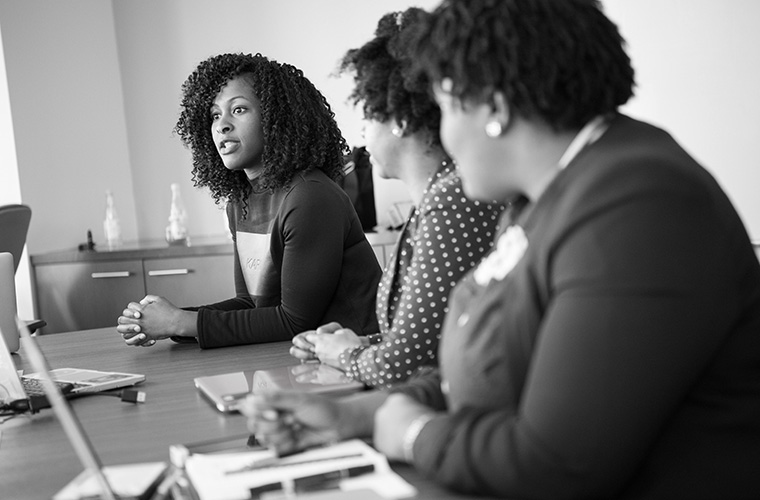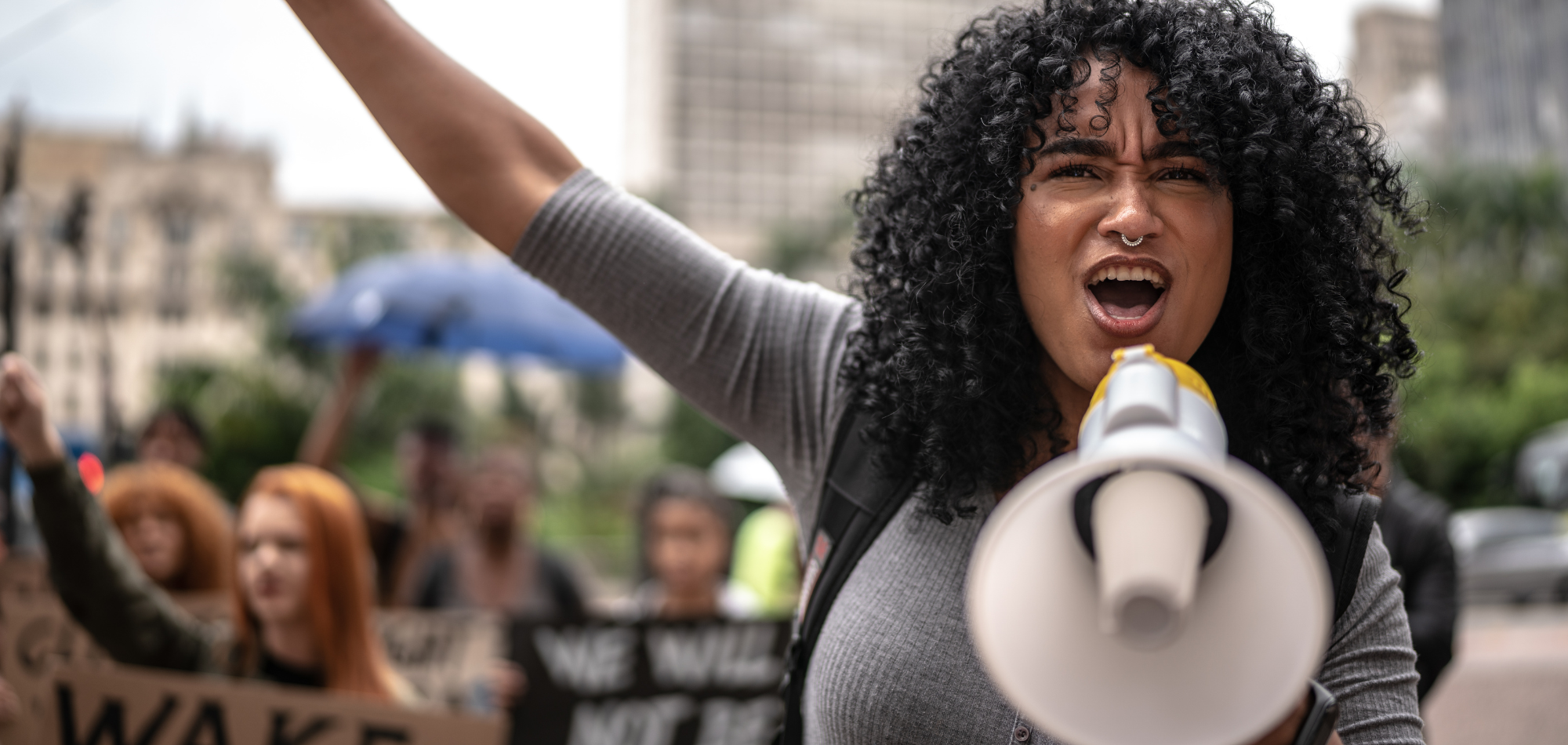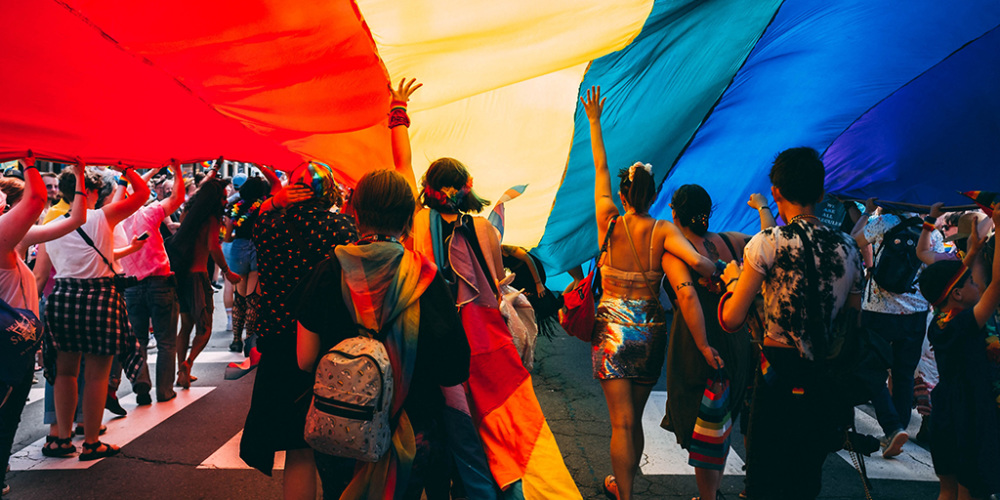

10 rules: following bell hooks’ instructions for our movement
How to best honor a mother and creator of feminism, bell hooks: follow the instructions she provided for our movement. They are as relevant today as when she wrote them 30 years ago.
These are the tenets Equal Rights Advocates lives and works by. They guide our every decision.
“bell hooks taught us, love must drive our movement — our goals, our priorities, and how we do our work. We cannot reject love as feminism’s cornerstone because we are afraid we won’t be taken seriously.”
bell hooks told us, feminism must center the needs of Black women and others who are most oppressed by society and culture. We must commit to finding solutions for people of all genders. Our movement must reject a fear-based scarcity mindset of white supremacy that tries to fool us into seeing a limited number of seats at the table, that tries to divide us with the lie that we must choose our battles.
bell hooks taught us, we must do our work with the recognition that sexism, racism, homophobia, and all forms of oppression overlap to create women’s daily experiences of economic insecurity, gender-based violence, professional and creative stifling, and the devaluing of our lives and contributions. All forms of oppression have joined forces to keep us down, so we too must all join forces to achieve true freedom.
“bell hooks told us…our movement must reject a fear-based scarcity mindset of white supremacy that tries to fool us into seeing a limited number of seats at the table.”
bell hooks showed us, love must drive our movement — our goals, our priorities, and how we do our work. We cannot reject love as feminism’s cornerstone because we are afraid we won’t be taken seriously. In a culture that tries to convince us love has no value outside the home, rejecting love as our movement’s North Star means conceding to the very forces that oppress us in the first place.
bell hooks reminded us, the love that leads our movement for change must include self-love, the most radical exercise of anti-oppression a woman can practice.
This Black History Month, we honor bell hooks by recommitting ourselves to her instructions for the feminist movement:
- “Dominator culture has tried to keep us all afraid, to make us choose safety instead of risk, sameness instead of diversity. Moving through that fear, finding out what connects us, reveling in our differences; this is the process that brings us closer, that gives us a world of shared values, of meaningful community.”
– Teaching Community: A Pedagogy of Hope, 2003 - “To build community requires vigilant awareness of the work we must continually do to undermine all the socialization that leads us to behave in ways that perpetuate domination.”
– Teaching Community: A Pedagogy of Hope, 2003 - “All our silences in the face of racist assault are acts of complicity.”
– Killing Rage: Ending Racism, 1995 - “We continue to put in place the anti-sexist thinking and practice which affirms the reality that females can achieve self-actualization and success without dominating one another.”
– Feminism is for Everybody: Passionate Politics, 2000 - “It is obvious that many women have appropriated feminism to serve their own ends, especially those white women who have been at the forefront of the movement; but rather than resigning myself to this appropriation I choose to re-appropriate the term ‘feminism,’ to focus on the fact that to be ‘feminist’ in any authentic sense of the term is to want for all people, female and male, liberation from sexist role patterns, domination, and oppression.”
– Ain’t I a Woman: Black Women and Feminism, 1981 - “One of the best guides to how to be self-loving is to give ourselves the love we are often dreaming about receiving from others… It is silly, isn’t it, that I would dream of someone else offering to me the acceptance and affirmation I was withholding from myself. This was a moment when the maxim ‘You can never love anybody if you are unable to love yourself’ made clear sense. And I add, ‘Do not expect to receive the love from someone else you do not give yourself.’”
– All About Love: New Visions, 1999 - “We can’t combat white supremacy unless we can teach people to love justice. You have to love justice more than your allegiance to your race, sexuality and gender. It is about justice.”
– interview with Jet Magazine, 2013 - “Marginality [is] much more than a site of deprivation. In fact I was saying just the opposite: that it is also the site of radical possibility, a space of resistance.”
– Marginality As a Site of Resistance, 1990 - “The process begins with the individual woman’s acceptance that American women, without exception, are socialized to be racist, classist and sexist, in varying degrees, and that labeling ourselves feminists does not change the fact that we must consciously work to rid ourselves of the legacy of negative socialization.”
– Ain’t I a Woman: Black Women and Feminism, 1981 - “The moment we choose to love we begin to move against domination, against oppression. The moment we choose to love we begin to move towards freedom, to act in ways that liberate ourselves and others.”
– Outlaw Culture: Resisting Representations, 1994
Follow the rest of our Black History Month content, including a series honoring Black Women Currently Making History, by following us on Twitter and Instagram.
Stay Connected & Take Action
- Get the Latest News & Information Sign up for Email Updates
- Sign Up for Action Alerts Join the Action Team
- Follow Us

